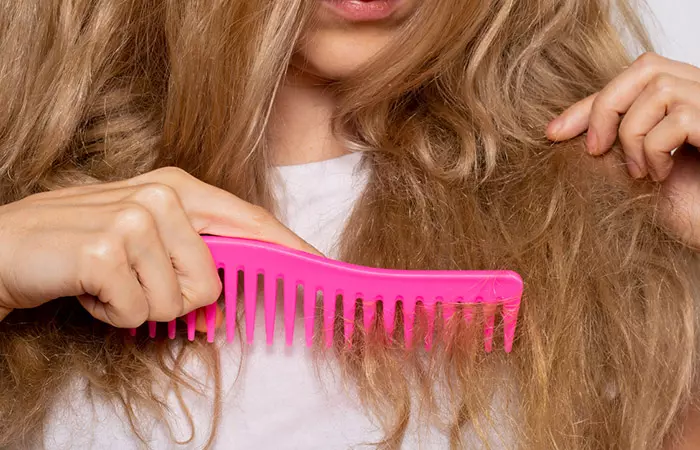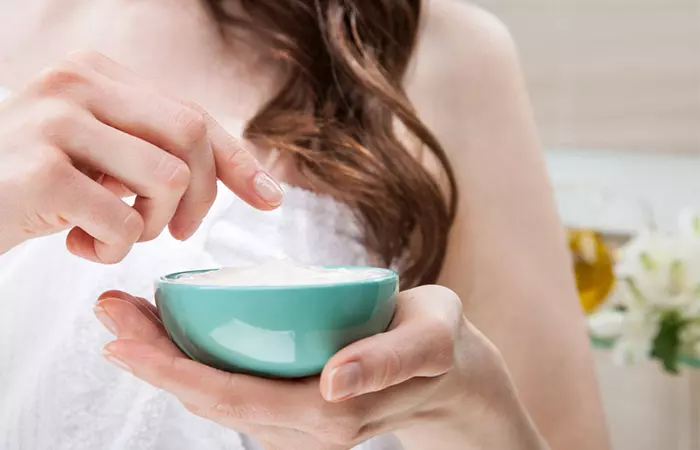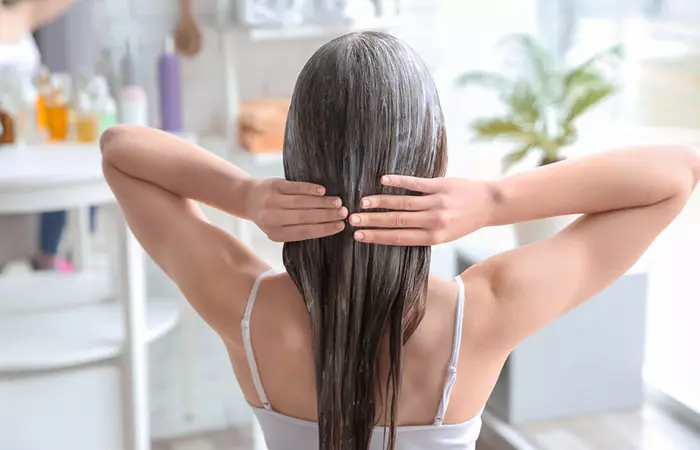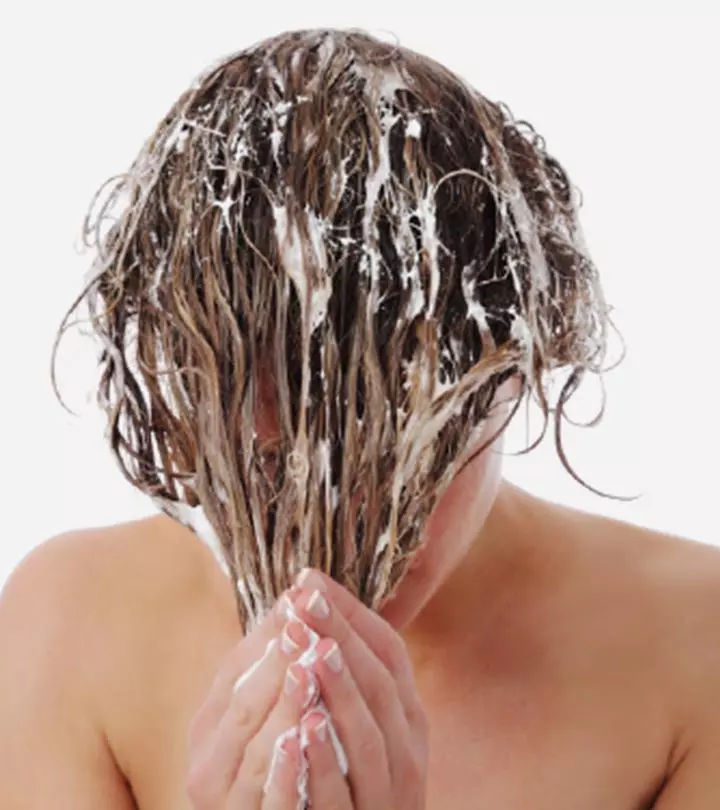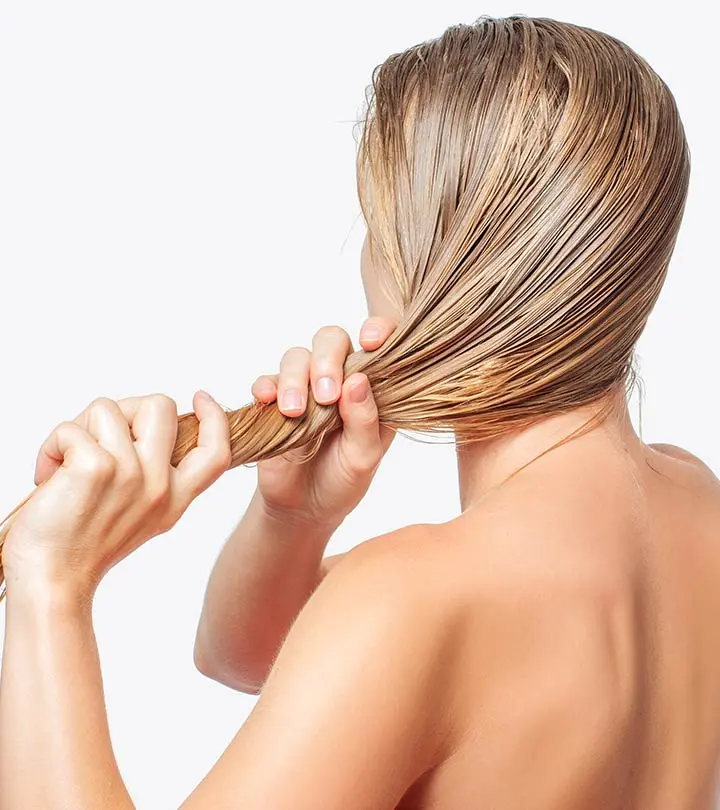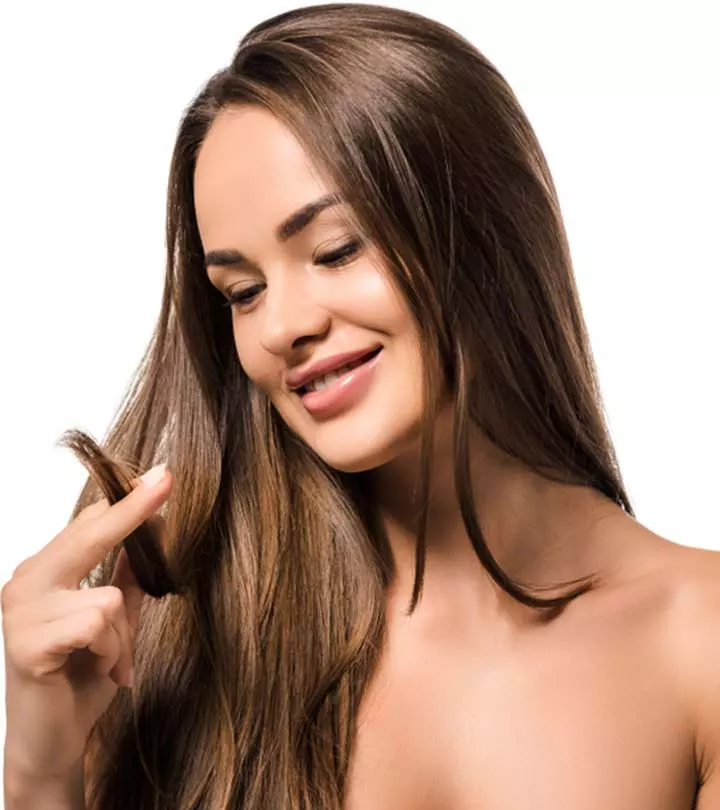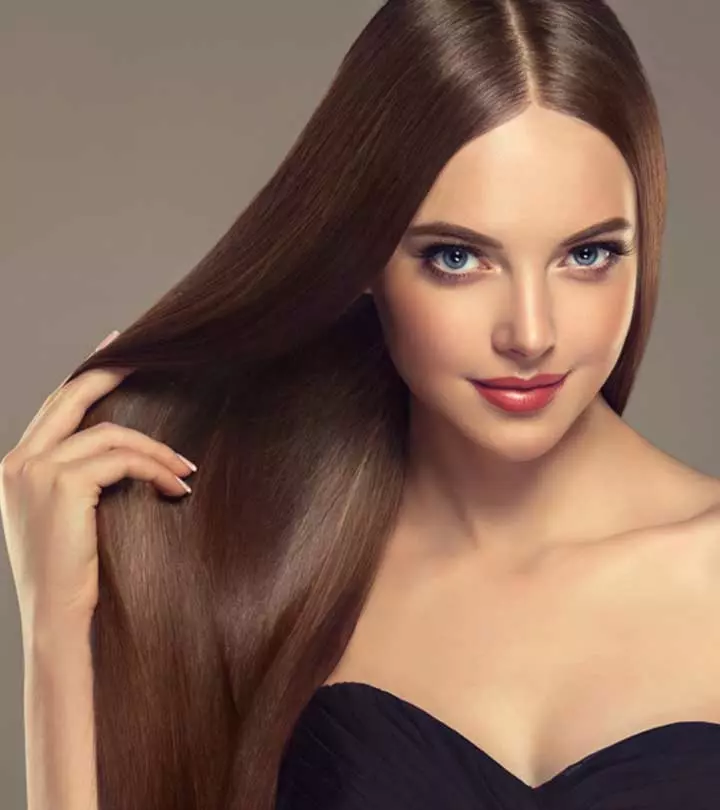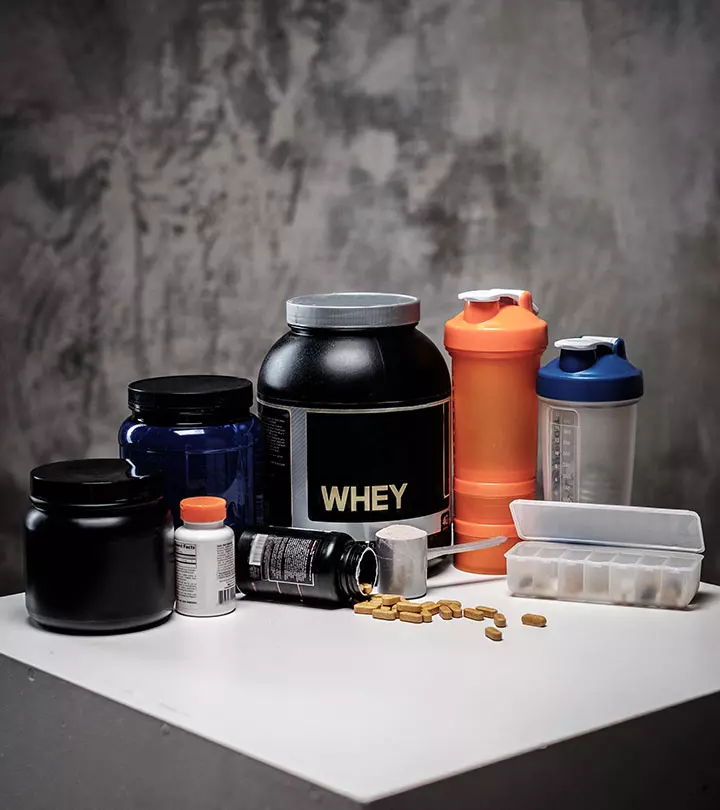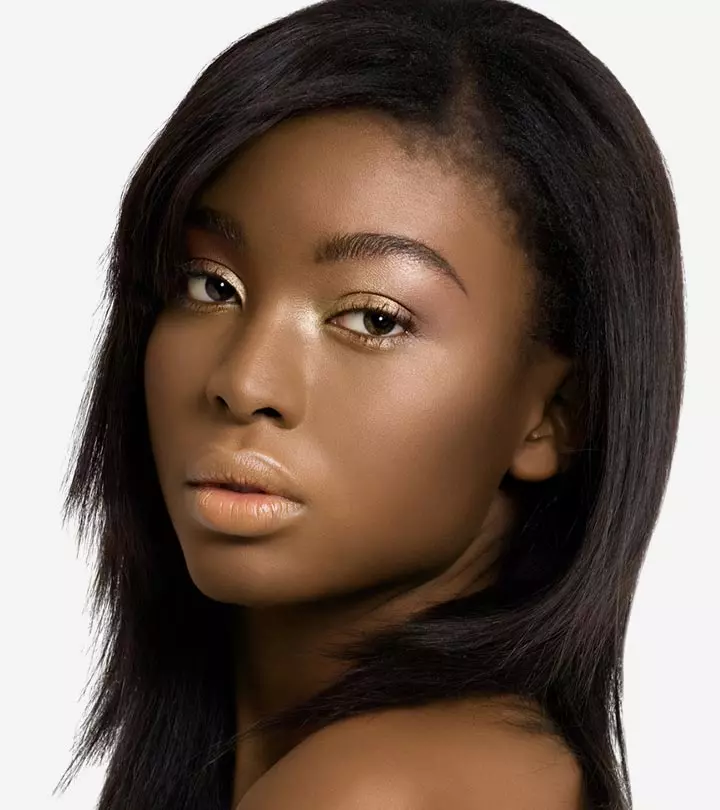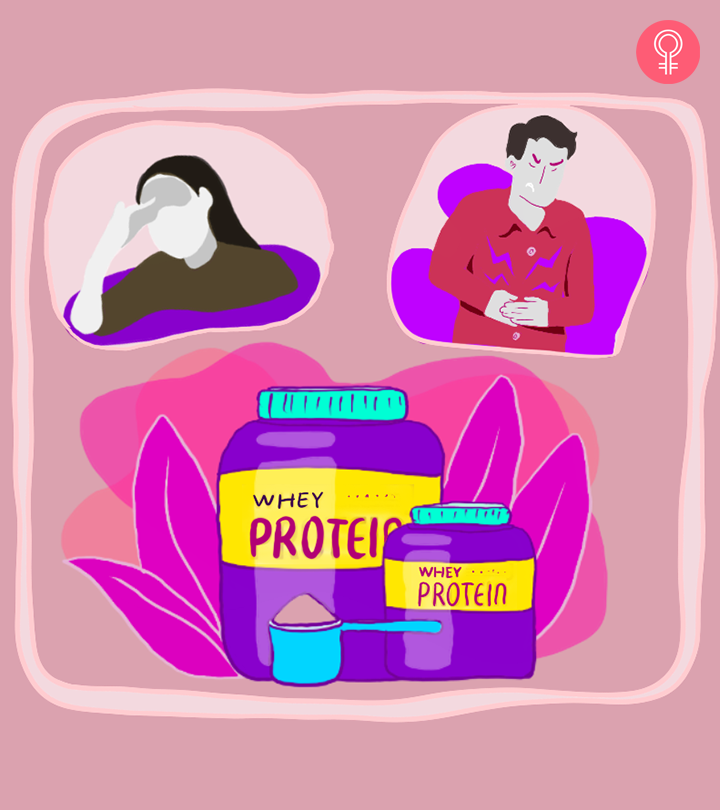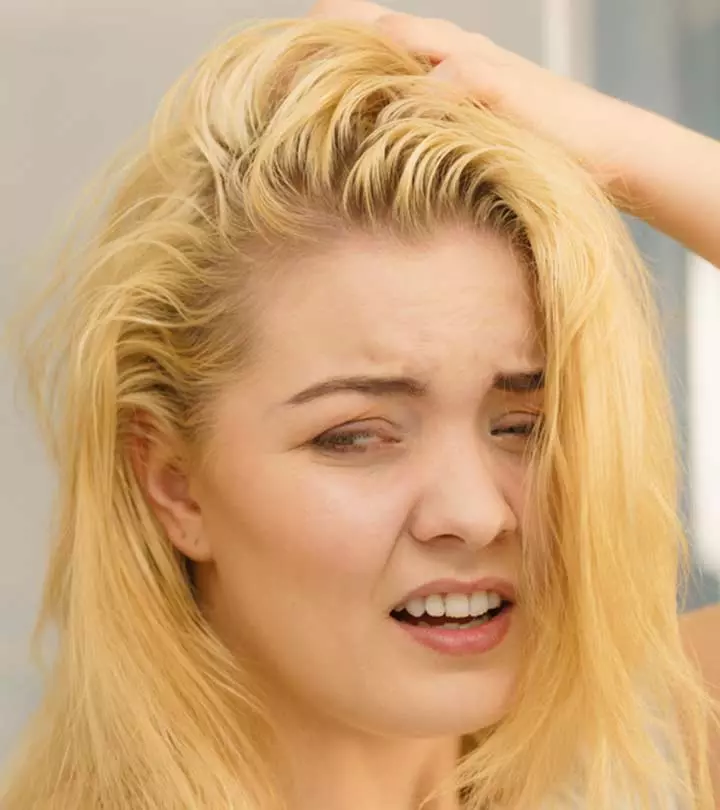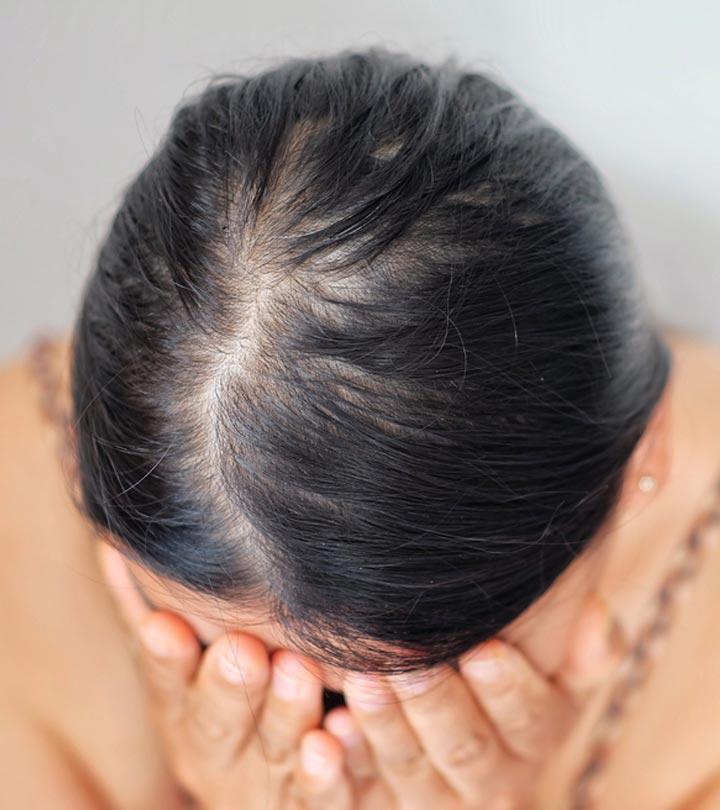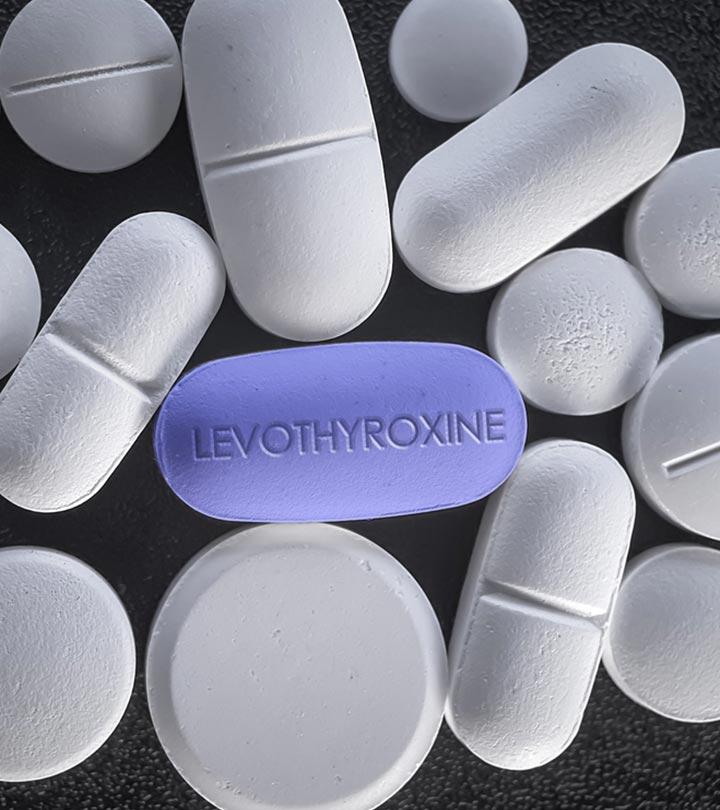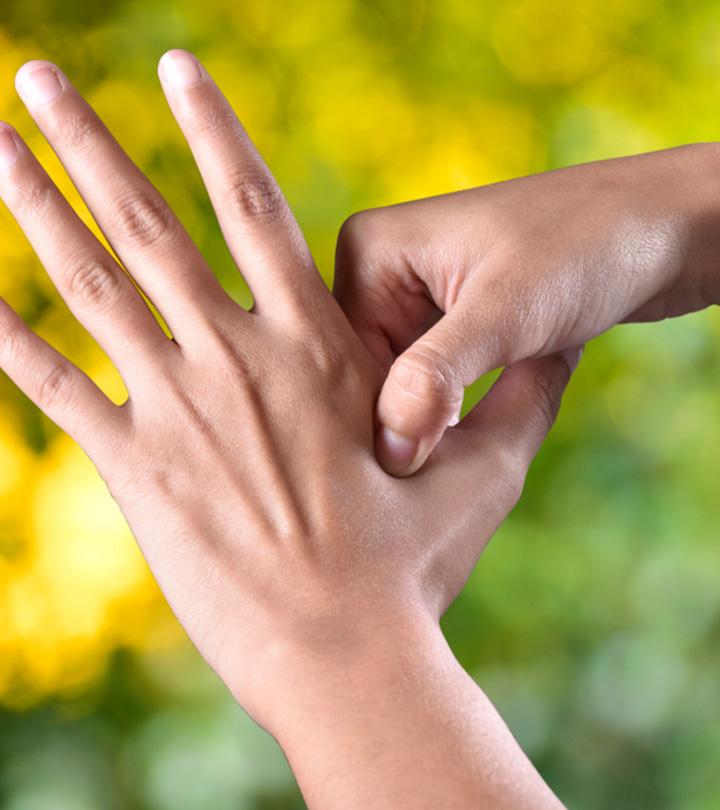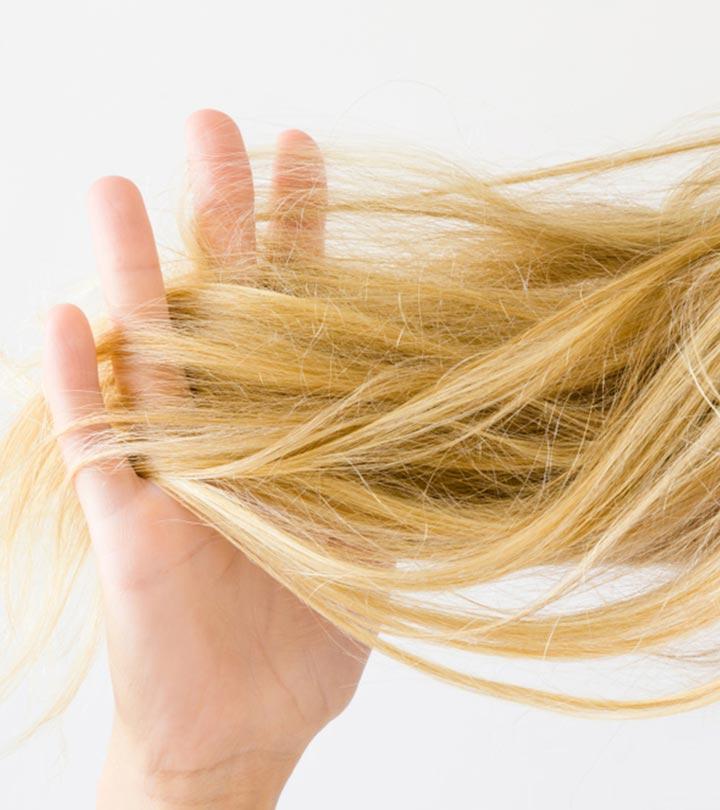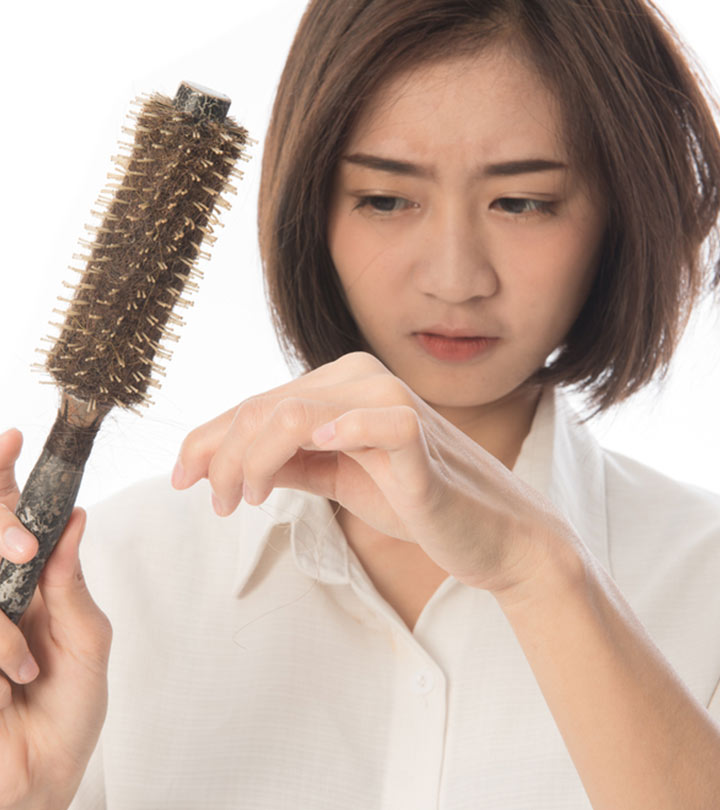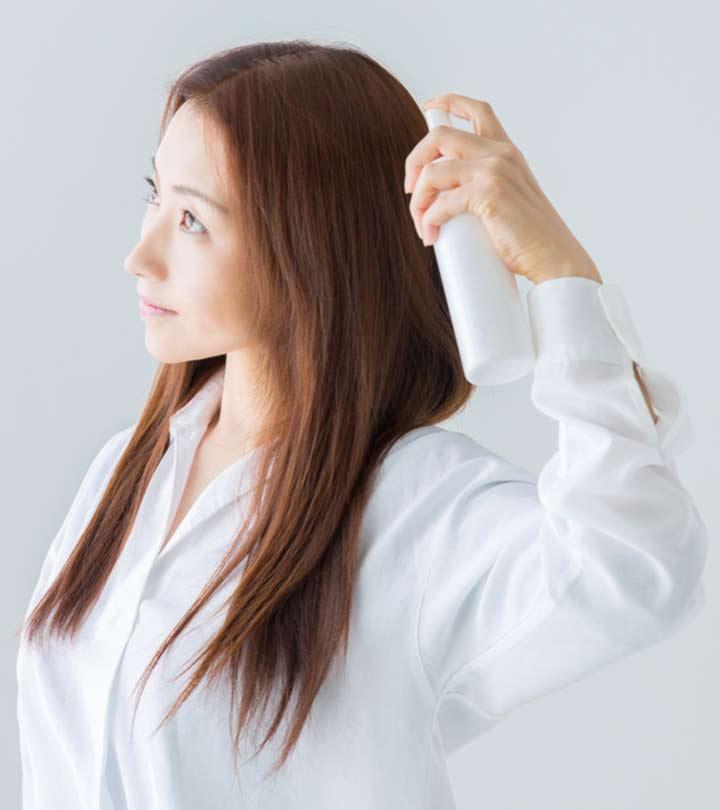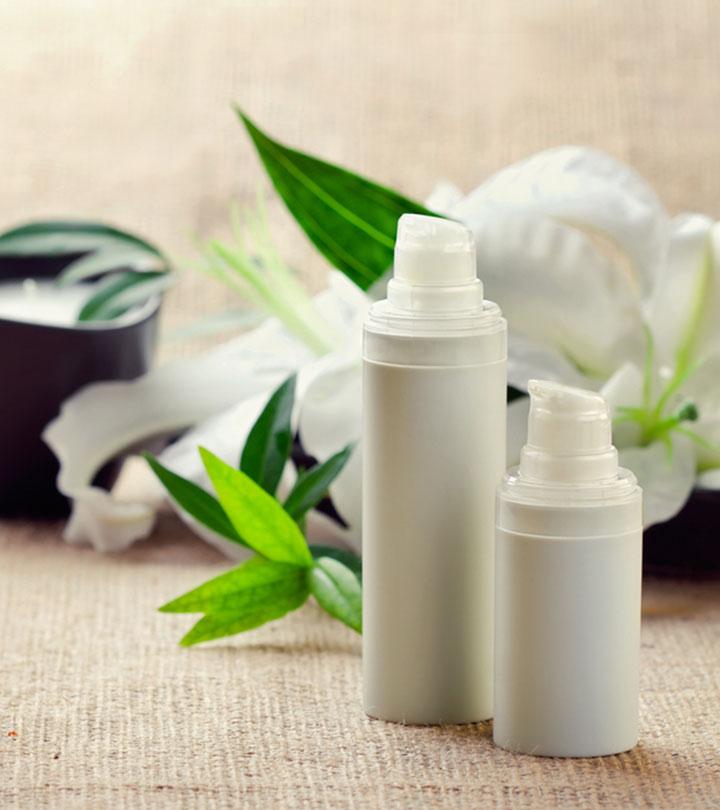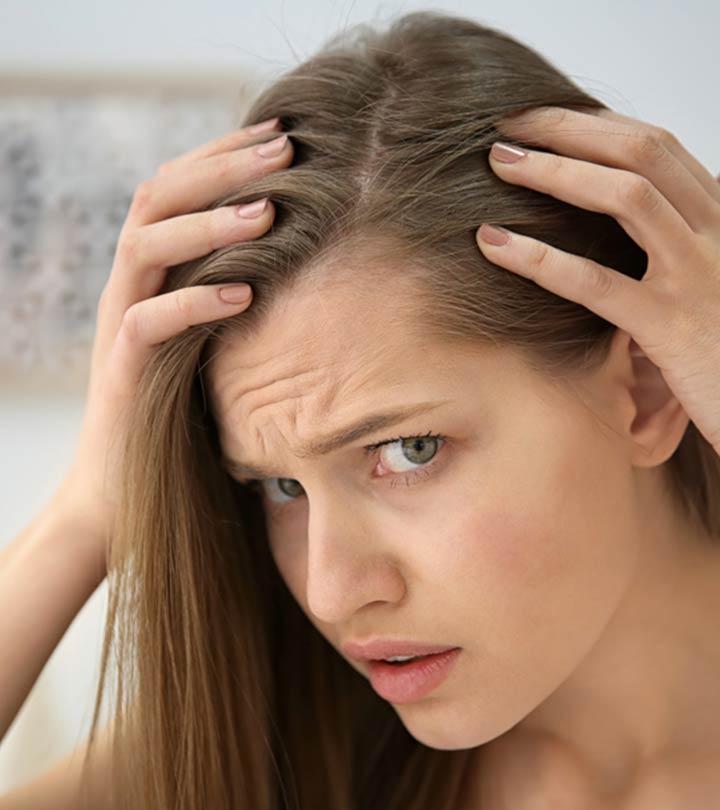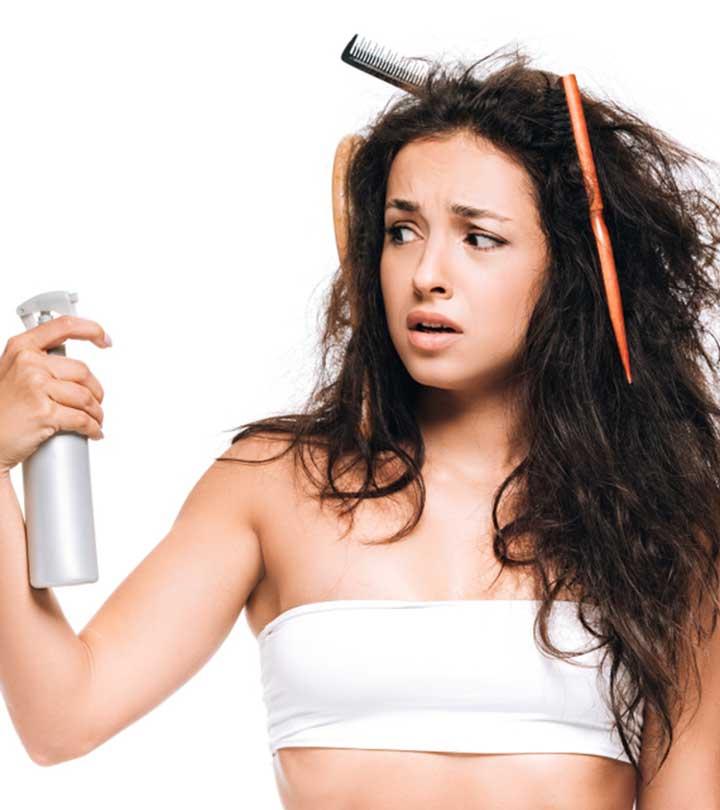Too Much Protein In Hair: How To Fix It
Don’t worry, these simple hacks will help remove the excess protein from your tresses easily.
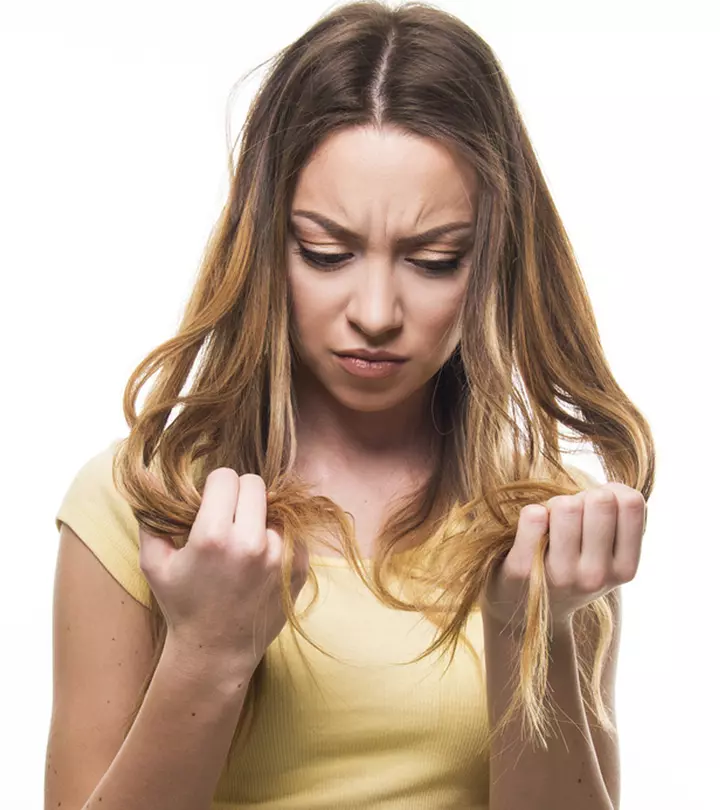
Image: ShutterStock
Too much of anything can be damaging. The same is true with an excess of protein hair treatments or overuse of protein-rich hair care products. Dry, brittle hair with split ends could be caused by too much protein in the hair. Though protein is the primary component of hair, its overload leads to hair damage.
This article explores the reasons for protein overload, the signs, and how to fix it. Keep reading.
In This Article
The Reasons For Protein Overload Explained
Protein overload occurs when you use too many protein-rich hair products. Shampoos, conditioners, hair masks, serums often contain keratini One of the scleroproteins (structural fibrous proteins) that majorly make up human hair, nails, and skin. . Too much keratin in your hair follicles prevents water from penetrating the hair shafts, making the hair dry and brittle.
If you notice a difference in texture, check your hair products to see if they contain any of the following:
- Soy protein
- Silk protein
- Keratin
- Hydrolyzed collageni A functional supplementation food to enhance skin hydration, elasticity, and moisture absorption, mainly for 40-60 years old women.
- Hydrolyzed wheat protein
- Hydrolyzed rice proteini Cosmetic-grade vegetable protein rich in amino acids made by hydrolysis (chemical breakdown with water) of rice.
- Amino acids
If you have protein sensitivity, avoid using protein products for a while. Excess protein buildup affects all types of hair, especially low-porosityi It is the flexibility to absorb and preserve moisture and other products affected by the outermost layer of the hair. hair (type 3 and 4). Low porosity hair cannot absorb water easily, and using protein-rich products can further prevent water absorption, causing hair breakage.
Here are some signs of protein overload in your hair.
5 Signs Of Protein Overload
1. Brittle And Dry Hair
Too much protein makes the hair dry and brittle. Try pulling a strand. If it snaps easily without stretching, it indicates excess protein.
2. Stiff Or Straw-Like Feeling
Run your fingers over your hair. If it feels rough, coarse, and straw-like, it is because of excess protein. Use a deep hydrating conditioner and nourishing oils to moisturize the hair.
3. Radical Change In Curl Pattern Or Hair Texture
If you experience noticeable changes in the hair texture or pattern, it may be a sign of protein overload in your hair. It can involve loss of the natural curl pattern or the usual sheen.
4. Lack Of Shine
Healthy and lustrous hair needs the right amount of hydration. When the hair lacks water due to protein overload, it loses shine. You may notice your hair losing its natural color and becoming dull.
5. Shedding
Though not proven scientifically, excess hair shedding could be one of the signs of protein overload.
In the next section, we discuss the solutions for protein overload in hair.
How To Fix Protein Overload
To determine if your hair has protein overload, you may try the hair strand test. Here’s what you need to do:
- Take a strand of either wet or dry hair and stretch it gently.
- If it snaps easily, it indicates protein
- If it stretches a bit and then snaps, it has the right protein-water balance.
If your hair has excess protein, try the following methods to fix it. Remember, fixing the problem takes time and may take weeks or months.
1. Avoid Hair Products With Protein
Do not buy hair products that have protein. If you are using a protein-containing hair product, stop using it. Some hair care products mention protein as an ingredient, while others mention amino acids, yogurt, and keratin.
Avoid using coconut oil as it prevents protein loss from the hair (1). Use hydrating products that contain natural ingredients to revitalize your hair and scalp.
2. Hair Clarifying Products
Get a good deep-cleansing or clarifying shampoo to remove excess protein, sebum, and dirt buildup. Use it once in two weeks and always follow up with a hydrating conditioner.
Sharifa, a natural hair care blogger, shared about her experience of using bentonite clay to detox the hair and scalp from protein overload. She said, “The brittle and dry feeling my hair had, vanished straight away, so I was over the moon with the clay results. My hair didn’t feel ‘cleansed.’ It felt moisturized and detoxified (i).” She also shared her excitement at experiencing a real bounce in her curls for the first time since going natural.
3. Moisturizer
Your hair needs moisturizing ingredients to cover the moisture loss and regain its natural bounce. Use hydrating hair masks and oils (except coconut oil) to keep the strands hydrated and soft.
 Quick Tip
Quick TipTo increase the moisture levels in your hair, you may follow this hair care routine:
- Co-wash and shampoo on an alternate basis.
- Apply a deep conditioner and wrap your head with a warm towel for better penetration.
- Use a moisturizing hair mask once a week.
- Use a natural oil or hair serum to seal the hair cuticlesi As the outermost part of the hair shaft, hair cuticles hold a layer of dead cells as a protective layer for the innermost parts. and prevent moisture loss.
- Try steaming your hair with a steamer.
- Use overnight masks to moisturize and seal your hair. Cover it with a plastic bag overnight. Your hair should feel hydrated by morning.
 Quick Tip
Quick TipThese tips can surely help you deal with too much protein in your hair and help it regain its former shine.
Another hair blogger, Fatee, swore by this baggying method of covering moisturized hair with a shower cap overnight to nourish damaged hair. She said, “I baggyed my hair for two days straight and bye-bye protein overload! Since then I even use baggying to boost my hair’s moisture levels. For me, it is much better than co-washing (ii).”
Wondering how to figure out whether your hair is overloaded with moisture or protein? Check out the section below to find the answer.
Moisture Overload Vs. Protein Overload
While the cause and symptoms of protein overload are already explained above, people often confuse it with moisture overload. The latter occurs when the hair lacks protein and absorbs an excessive amount of moisture, typically due to over-conditioning or excessive use of products with moisturizing ingredients. This may result in your hair feeling limp, appearing greasy, and lacking volume. Unlike protein overload, where your hair becomes rough and lacks luster, in this case, the hair may feel “mushy” when wet or become overly elastic, potentially leading to breakage.
To remedy this, wash your hair with a clarifying shampoo to get rid of product buildup and oil residue. Switch to hair products that contain protein or use natural oils to provide some nourishment to your locks.
Infographic: 5 Signs You Have Excess Protein In Your Hair
While protein is extremely important and necessary for healthy hair, too much of it can also take everything down the hill. It may cause various hair problems, some of which may need immediate action. But how do you know if your hair has excess protein? In the infographic below, we have listed the major signs. Take a look!
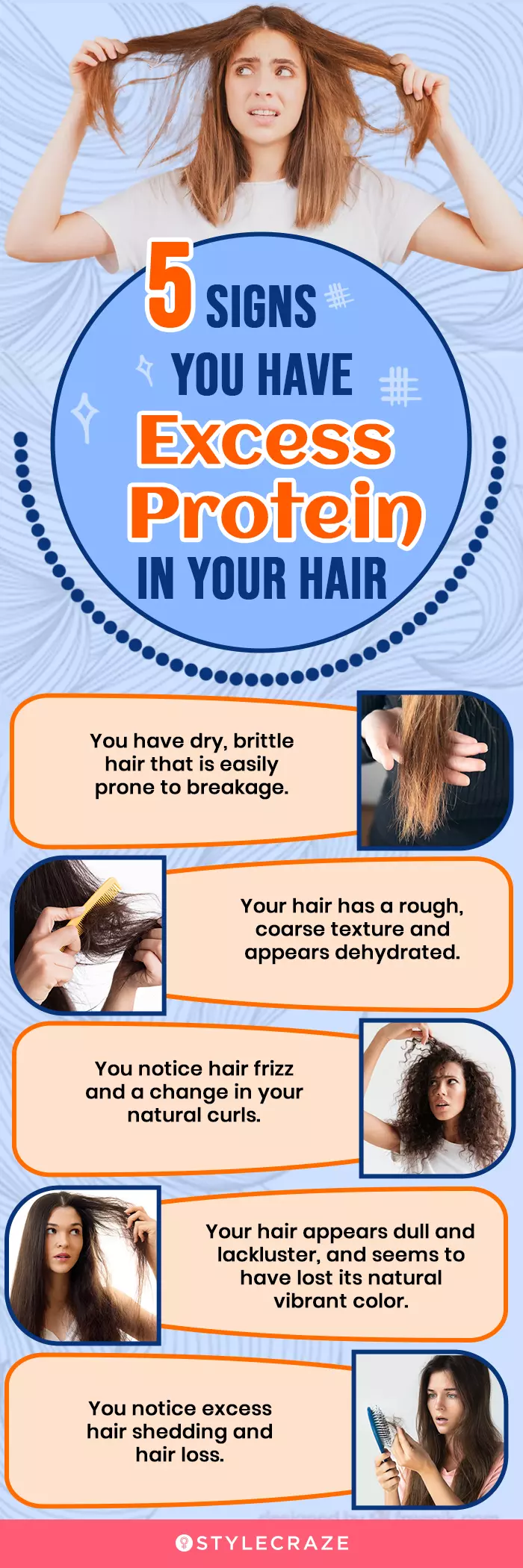
Illustration: StyleCraze Design Team
While protein is an essential nutrient for hair health, too much protein in your hair can lead to dry, brittle, and dull hair. It may also lead to excess hair shedding and changes in your hair texture. If you are using products with soy, silk, or hydrolyzed rice protein, it may cause an overload of protein in your hair. To combat this issue, you must avoid hair products with protein. Instead, use moisturizers, oils, and masks to keep your hair hydrated, bouncy, shiny, and healthy.
Frequently Asked Questions
Does Olaplex help with protein overload?
Yes. Olaplex can help eliminate breakage due to protein overload as it strengthens hair by relinking disulfide bondsi A chemical bond that helps hold the protein structures of the hair shaft together through elasticity and strength. .
Is aloe vera good for protein-sensitive hair?
No. Aloe vera isn’t good for protein-sensitive hair as its keratin-like compounds may be too big for such hair to absorb. It may make your hair strands bulky, brittle, dry, and prone to breakage.
What are some common protein treatments for hair?
Some of the common protein treatments for hair include keratin, egg protein, soy protein, and collagen treatment.
How long does it take to repair hair with protein overload?
It depends on the extent of hair damage and overload of protein, but generally after stopping the use of protein-containing products and following good hair care practices, it might take anywhere from a few weeks to months to repair your hair.
Can a hair stylist help me determine if my hair has too much protein?
Yes. An experienced hair stylist will first assess the condition of your hair and conduct a strand test to determine its health. They might ask you about your hair care routine. Based on all these factors, they will recommend the next steps you should take to improve your hair health.
Key Takeaways
- A radical change in curl pattern or hair texture, brittle and dry hair, stiff or straw-like feeling, lack of shine, and shedding are signs of protein overload.
- A hair strand test will help determine if your mane has protein overload.
- To protect your mane from protein overload, avoid using hair products rich in protein and clarifying products.
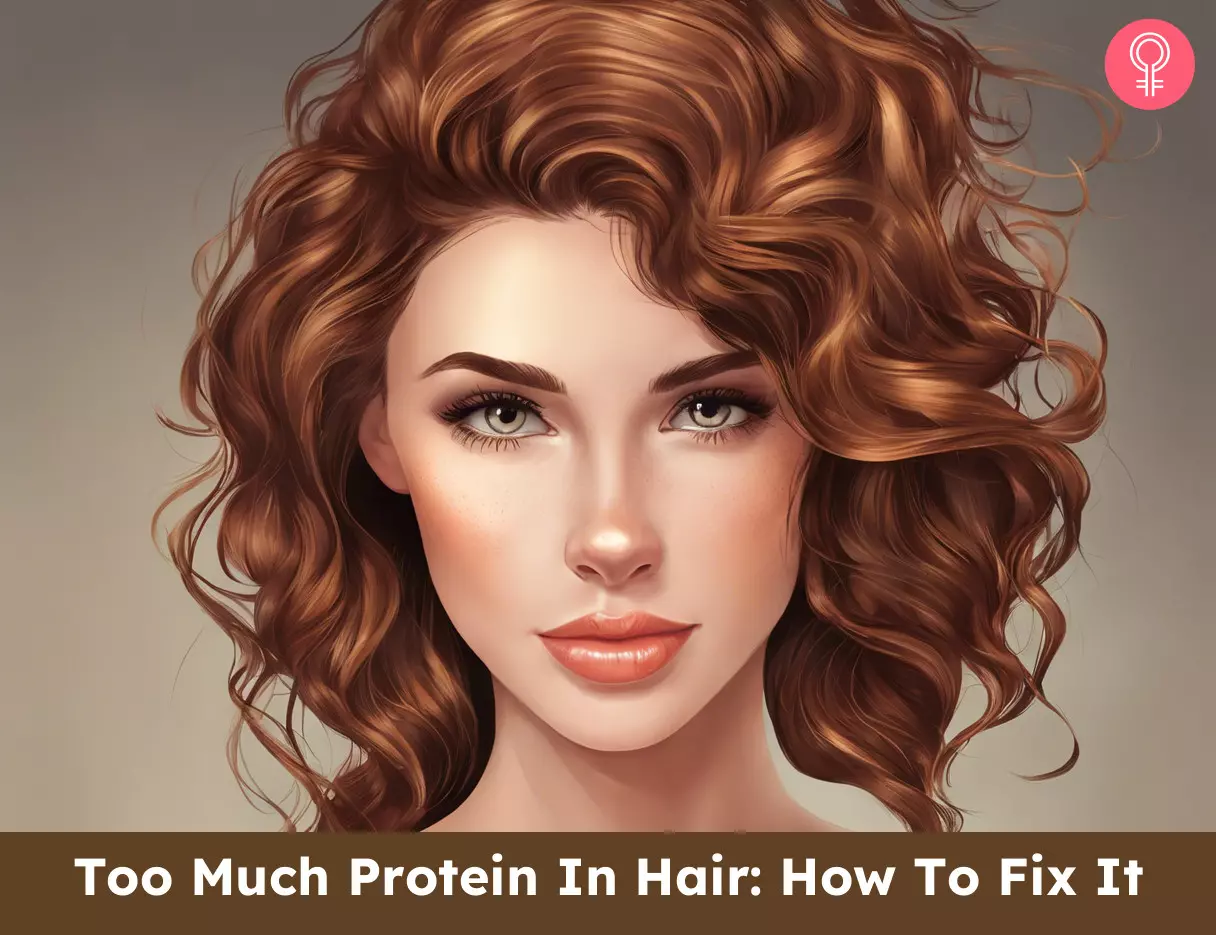
Image: Stable Diffusion/StyleCraze Design Team
Learn how to fix protein overload and have an affordable, hydrating wash day with our easy-to-follow tutorial! To get amazing results for your hair take a look at this video, now!
Personal Experience: Sources
StyleCraze's articles are interwoven with authentic personal narratives that provide depth and resonance to our content. Below are the sources of the personal accounts referenced in this article.
i. BENTONITE CLAY EXPERIENCEhttps://naturallycoiledsa.blogspot.com/2015/08/bentonite-clay-experience.html
ii. The demon called Protein Overload
https://haircademia.blogspot.com/2015/03/the-demon-called-protein-overload.html
References
Articles on StyleCraze are backed by verified information from peer-reviewed and academic research papers, reputed organizations, research institutions, and medical associations to ensure accuracy and relevance. Read our editorial policy to learn more.
- Effect of mineral oil, sunflower oil, and coconut oil on prevention of hair damage
https://pubmed.ncbi.nlm.nih.gov/12715094/
Read full bio of Dr. Shruti Chavan
Read full bio of Eshna Das
Read full bio of Monomita Chakraborty






